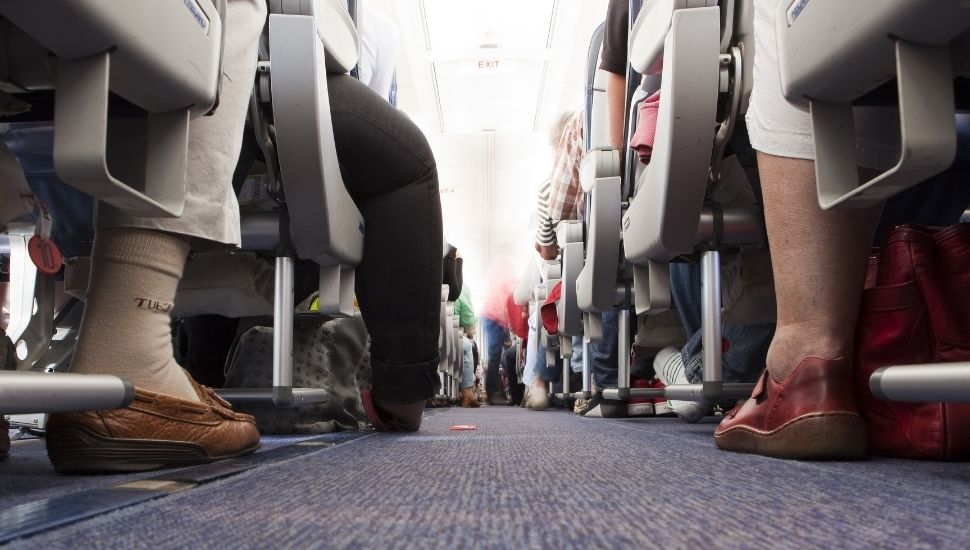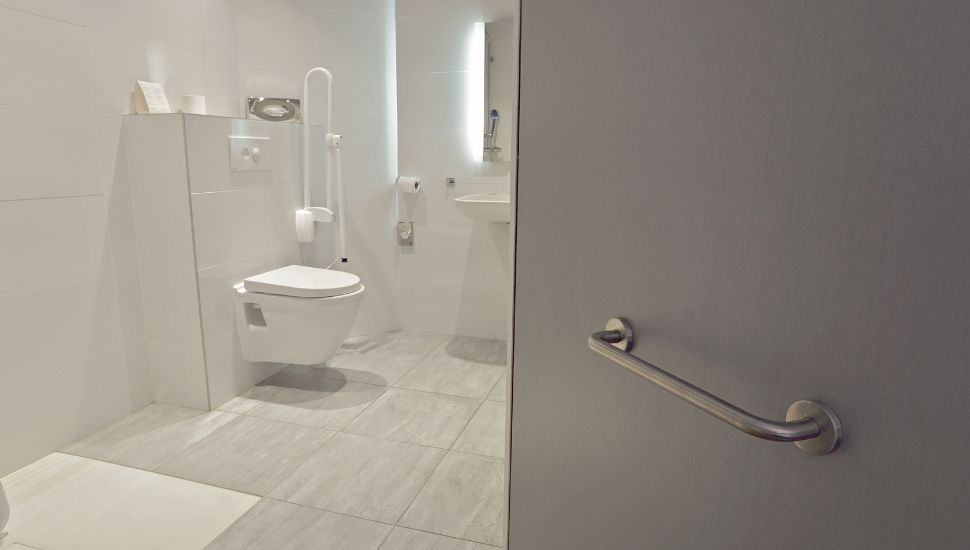Flying After Hip Surgery - How Soon Can I Fly?
The cartilage in our hip joints have to deal with a lot of pressure over the decades, so it’s little wonder that hip replacement operations are common, numbering more than 80,000 in England and Wales annually.
But how soon after hip surgery can you fly?
How long after hip replacement can you fly?
There's no doubt that having undergone a recent major hip procedure could make flying difficult and painful.
After a hip replacement procedure, the NHS advises waiting three months before taking to the air.
For general travel, the Royal College of Surgeons advises waiting at least three weeks after surgery.
Why flying after hip surgery can be a problem
- Sitting down in a confined place for several hours can increase discomfort after a hip replacement - so flying could be problematic.
- The lack of movement may also restrict blood flow, increasing the risk of developing deep vein thrombosis (DVT) - a blood clot in a vein (usually in a leg).
- The dry air pumped into planes can cause dehydration.
Speak to your GP
If you're yearning for air travel after hip surgery, it's important to discuss your plans with your GP.
They may prescribe blood-thinning medication for the fight, which will help reduce the chances of developing DVT.
Your GP may also recommend pain medication to minimise discomfort while travelling. They'll be able to provide a Fit to Fly certificate too, if needed, and advise on any activities you should avoid.
Get help at the airport
If you have had hip surgery and think you might struggle when moving around the airport, it's important to request assistance from your airline or tour operator. They will then arrange assistance, often provided by the airport operator through a specialist.
Give plenty of notice
Heathrow Airport recommends informing your airline or tour operator of your assistance needs at least 48 hours before departure.
You should also tell them if you plan on bringing your own mobility equipment.
How to arrange airport assistance
Be aware that assistance must be booked through your airline or operator - and cannot be organised directly with the airport by you.
If you're carrying luggage with you it's especially important to organise some assistance.
Naturally, this advice applies to those with any form of mobility challenge, as well as those flying after hip surgery.

Tips for a safe, comfortable flight following hip surgery
- Book a seat with extra legroom - any additional fee will be worth it
- Ideally book an aisle seat for easier toilet access
- Don't be afraid to ask for blankets and pillows if needed
- Wear flight socks to help prevent DVT (make sure you get the correct size)
- Take short walks along the aisle to aid circulation
- Avoid alcohol or caffeine as these can dehydrate you (a situation made worse by the dry cabin air)
- Wear loose clothes and comfortable shoes to improve blood circulation
- Self massage: roll a tennis ball into your muscles to improve circulation while flying
Going through airport security with a hip replacement
It’s highly likely that your hip replacement will set off an alarm when you pass through security. You should therefore let a security officer know about the hip replacement. They will then use a scanner to carry out the security check, which can be done in a private screened-off area.
You can also consult your doctor about this process.
Security staff deal with this situation every day, so it’s nothing to worry about.
At your destination
If you have had hip surgery, doubtless your GP will urge you to take it easy while on holiday.
Gentle leg exercises, short walks and swimming are recommended to support good circulation and build up muscle strength, but more strenuous activities are best avoided.
Activities to avoid following hip surgery include:
- Cycling earlier than 12 weeks after your hip procedure
- Running or jogging on hard surfaces
- Getting in and out of vehicles too often
- Skiing/snowboarding
Specific movements/activities to avoid following hip surgery (NHS advice):
- Avoid bending your hip at a right angle
- Avoid actions that involve a twisting motion
- Avoid swivelling on the balls of your feet (the point between arch and toes)
- Avoid lying/applying pressure to the wound in the hours and days after your operation
- Avoid crossing your legs
- Avoid sitting in low chairs and on low toilets
- Avoid high-impact sports

Avoiding falls on holiday
Many hip replacements are required due to damage resulting from a fall.
Suffering another fall could damage the new hip, resulting in further surgery.
It is therefore critical not to risk a fall while you're on holiday.
Tips for avoiding fall on holiday:
- Book a ground-floor room
- Book an adapted room, with grab bars for shower and toilet
- Ask for anti-slip mats for the shower room
- Pack comfortable, non-skid shoes
- Avoid stairs
- Avoid walking on uneven ground
- Avoid wet or slippery surfaces
- Use walking aids if necessary
- Get help with luggage or moving heavy items
- Avoid alcohol (as it can impact your balance)
- Avoid moving around in the dark or in low light
- Stay hydrated; dehydration may make you unsteady
The benefits of exercise following a hip replacement
With all these "avoids'' it's important to remember that regular light exercise is critical for getting back to normal life after a hip replacement.
For example, knee-bending exercises can help straighten and strengthen your knee joints.
Getting travel insurance after a hip replacement
The UK government urges all travellers to take out comprehensive insurance before they leave home.
It's arguably even more important when it comes to air travel after surgery, such as flying after hip surgery, due to the risk of picking up an injury.
A worse-case scenario might involve needing local emergency care, or being airlifted back to the UK - which might cost thousands of pounds.
To obtain cover, your provider will ask you questions about any recent medical visits, and any health conditions resulting from recent surgery.
Get a Quote